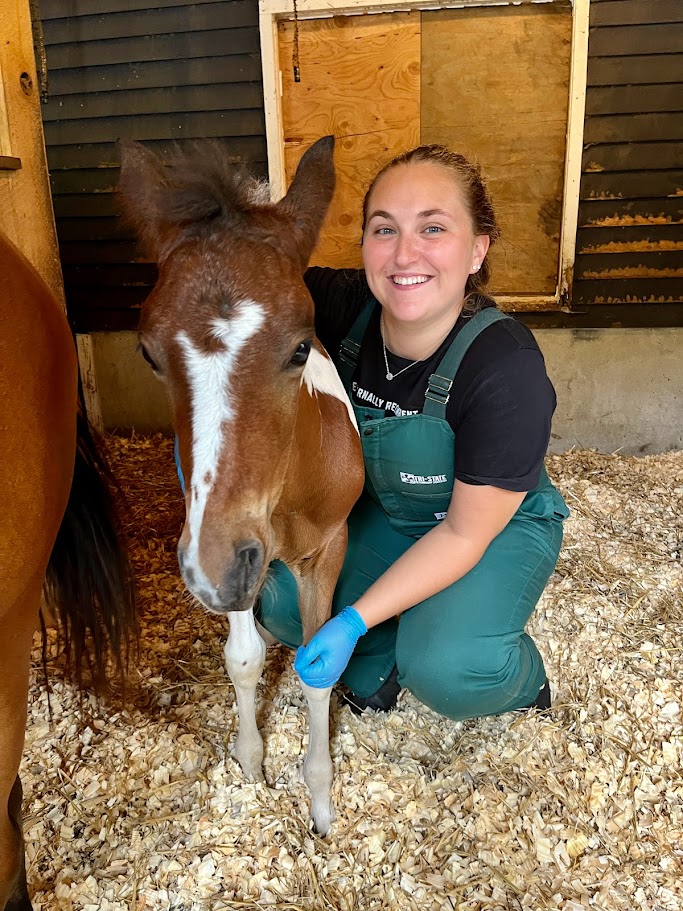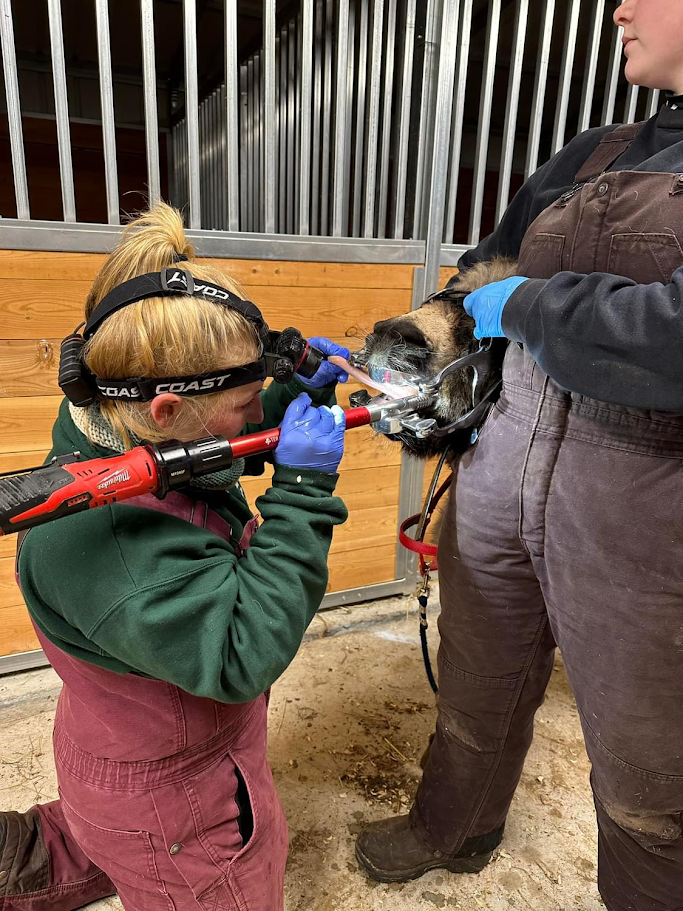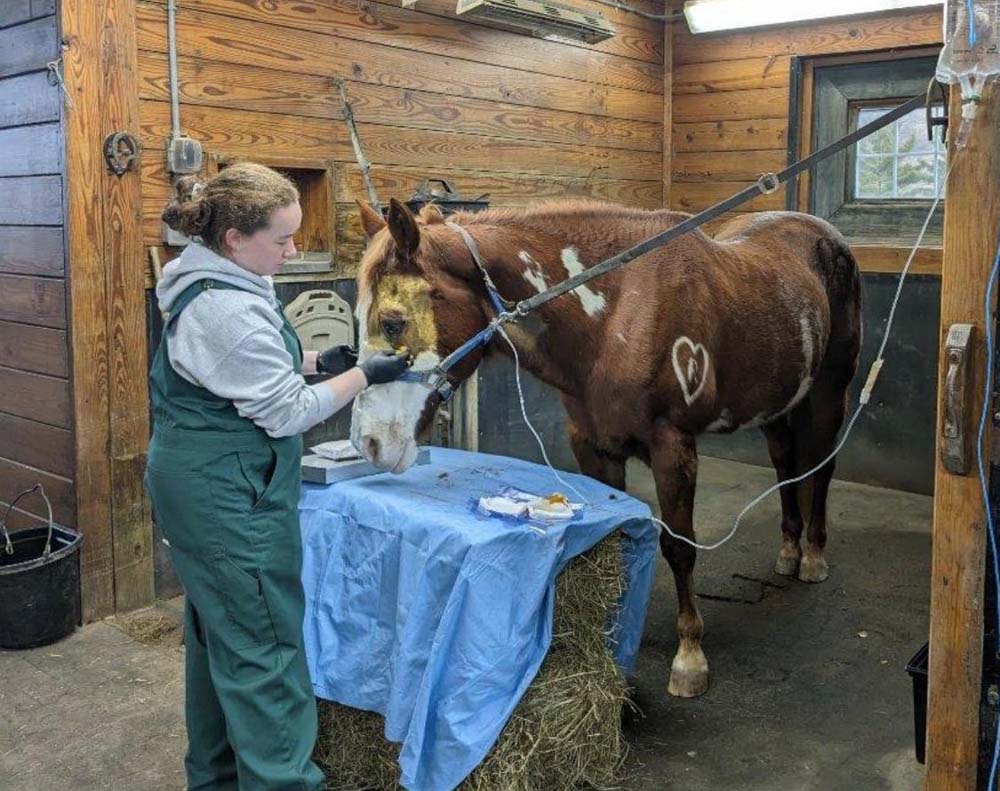Equine Services
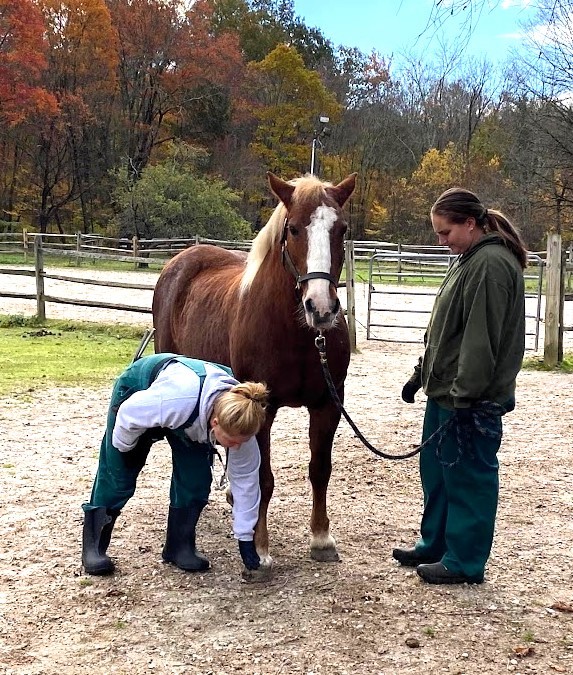 Health Checks: To ensure year-round health for your equine companion, it is important to have regular checkups with your veterinarian. We recommend that horses be examined at least twice a year, once in the Spring and once in the Fall. During these check-ups, a thorough exam is performed to assess body condition, gut health, hoof care, dental health, and nutrition. Regular vaccinations will be given and Coggins testing will be performed at this time if due, and a fecal sample will be collected to assess worm burden and determine if deworming is necessary.
Health Checks: To ensure year-round health for your equine companion, it is important to have regular checkups with your veterinarian. We recommend that horses be examined at least twice a year, once in the Spring and once in the Fall. During these check-ups, a thorough exam is performed to assess body condition, gut health, hoof care, dental health, and nutrition. Regular vaccinations will be given and Coggins testing will be performed at this time if due, and a fecal sample will be collected to assess worm burden and determine if deworming is necessary.
Deworming Recommendations: We believe in individual treatment when it comes to deworming your horse, pony, donkey, or mule. Based on your horse’s fecal testing results, environment, level of work, and immune system we come up with a deworming plan that is most effective for your horse while being conscious of overuse and preventing resistance.
Our deworming method involves collecting a fecal sample from your horse twice a year, once in the fall before the first frost (October – November) and once in the spring after mud season (April-May). These times of the year are when worm burdens are highest in the environment. We will run tests on the feces in our in-house lab and based on the results determine whether or not your horse needs to be treated, and if so, with what medication.
Dentistry: Horses need regular preventive dental maintenance every 6-12 months. Unlike people, horses’ teeth have an eruption rate of two-three mm per year. The teeth should wear in correspondence to the yearly eruption rate. Malocclusions, or improper position of the teeth, can lead to many health issues and behavioral problems. Identifying dental problems as early as possible is important.
We are equipped to perform hand-floats or power-floats on equine companions of all shapes and sizes. We believe that your horse’s health depends greatly on the condition of their mouth and want to help develop a complete and regular dental management plan for you and your equine friend.
Vaccinations: Vaccines are preparations of killed microorganisms, living weakened microorganisms, etc. introduced into the body to produce immunity to a specific disease by causing the formation of anti-bodies.
Vaccines are very delicate compounds, which if handled or administered incorrectly will be ineffective or neutralized. For this reason, having a professional veterinarian administer vaccinations to your horses is important to ensure the injection is effective.
Determining what vaccinations your horse may need is based on your horse’s risk of exposure, environment, and individual immune system. Vaccines are administered initially as a two-shot series and then annually or semiannually. The vaccines and vaccine protocols listed below are tailored to our practice and geographic location and follow the guidelines of the AAEP.
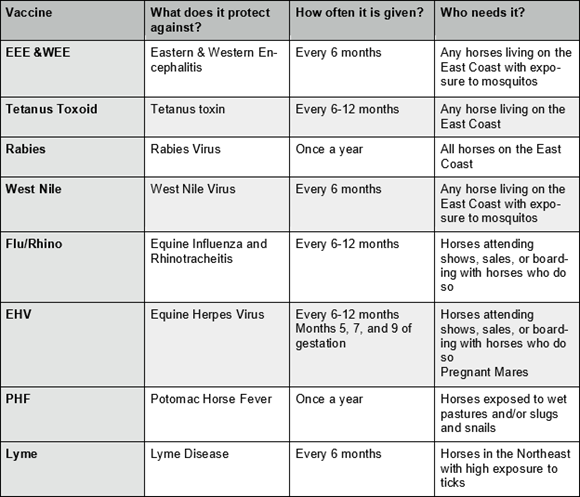
We are able to run a variety of diagnostics including, but not limited to:
- Basic Chemistry and CBC
- Coggins/EIA
- ACTH
- Senior Profiles
- Fecals
- Lyme Disease
Other Services Include:
- Pre-Purchase Exams
- Lameness exams
- Health Certificates
- Surgery
- Digital XRay
- Ultrasound
